The intoxicating aroma of fresh-from-the-oven bread wafts through the air as dozens of shoppers at the Menlo Park farmers market line up to buy naturally leavened bread in multiple alluring guises from Little Sky Bakery. There's a tray of rich challah rolls containing beguiling swirls of Nutella or pistachio cream. Tangy, purple-hued levain rounds touched with ground blueberries are studded with walnuts. There's an uncommonly lavish ratio of fruit to dough in the raisin-nut bread. Golden sections of nutty-flavored, fine-textured country bread are speckled throughout with toasted black and white sesame seeds.
Lawyer Turned Baker's Recipe for Success: YouTube (And a Century-Old Starter)
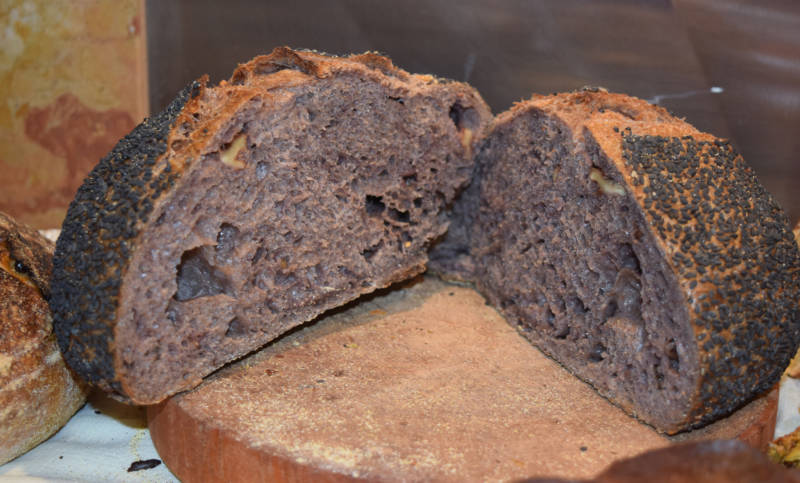
The resume of bakers who produce artisan bread like this often involves culinary school and lengthy apprenticeships, which makes Little Sky founder Tian Mayimin one of the most unlikely of bakers. She was born in China, received her undergrad, masters and law degrees from Harvard, worked in the anti-trust area at a blue-chip law firm in Washington, D.C., and didn't begin doing experimental bread baking as a hobby until a couple of years ago.
Mayimin knew she wanted to start some sort of food-related company after moving to Menlo Park in 2016 with her new husband after he joined the Stanford faculty to teach and do research in his field of computational neuroscience. But becoming a professional baker was a fluke.
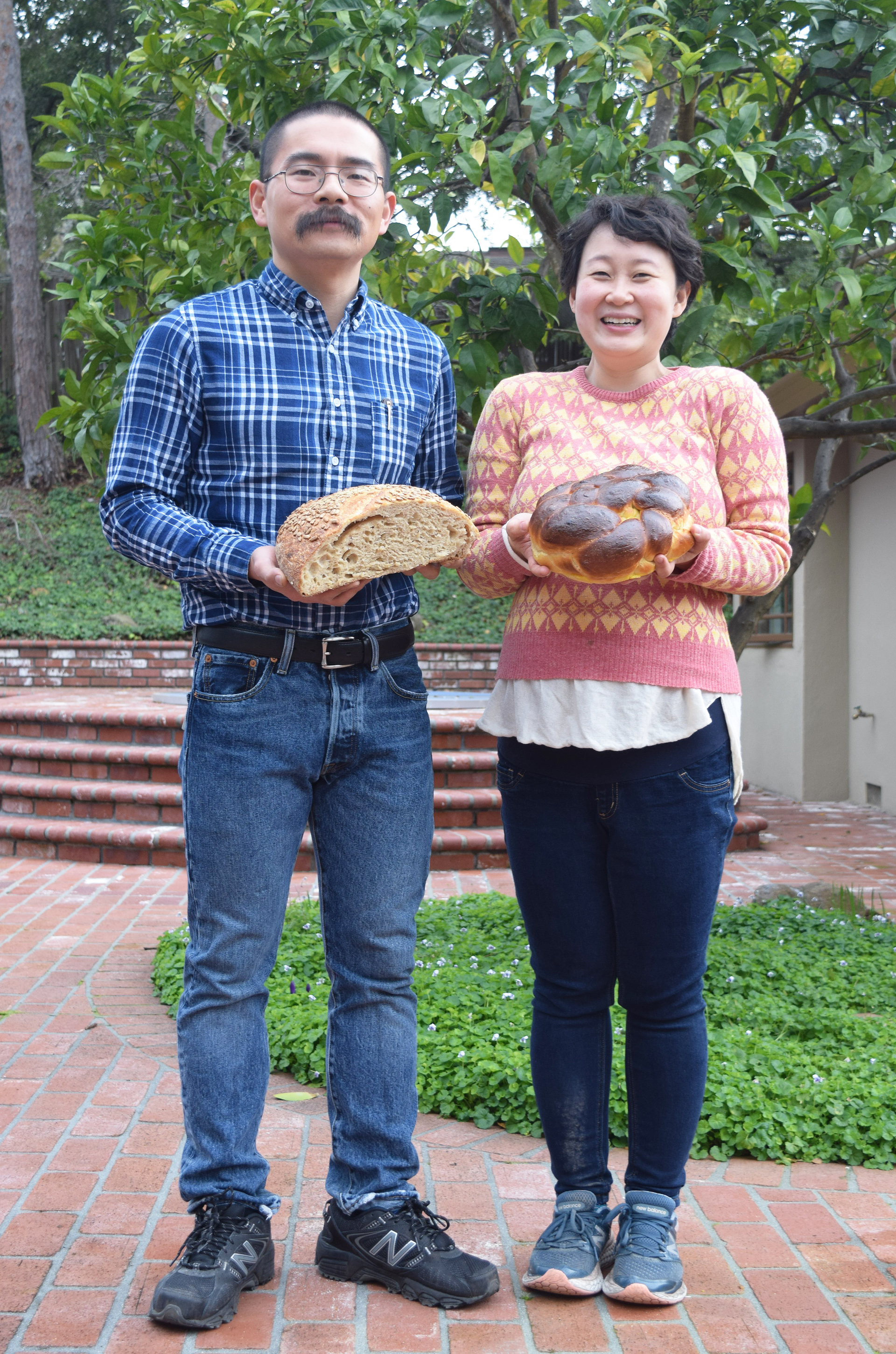
Playing with a starter
Mayimin's new career began with the acquisition of a century-old starter that had been passed around within the family of a friend for awhile, with her receiving it from the friend's mother. Its history is "slightly mysterious," she says, but "The story was, it originated in France, went to Alaska, went to Taiwan and came to California."
Armed with this promising starter, new Bay Area resident Mayimin began playing around with challah recipes for fun while fitfully writing a business plan that didn't have a firm concept. "After our families descended on us (for a visit), I started baking every day, just to feed them. I'd never baked bread before," she explains.
"We had excess bread so we'd show up at our friends' and neighbors' doors. 'Hey, here's a loaf of bread,'" Mayimin recalls with a laugh. The response was so enthusiastic and the baking so much fun that she soon had her business concept, which started with free local delivery of her loaves based on an ebullient response to postcards left on doorsteps in her neighborhood. This was in the spring of 2017.
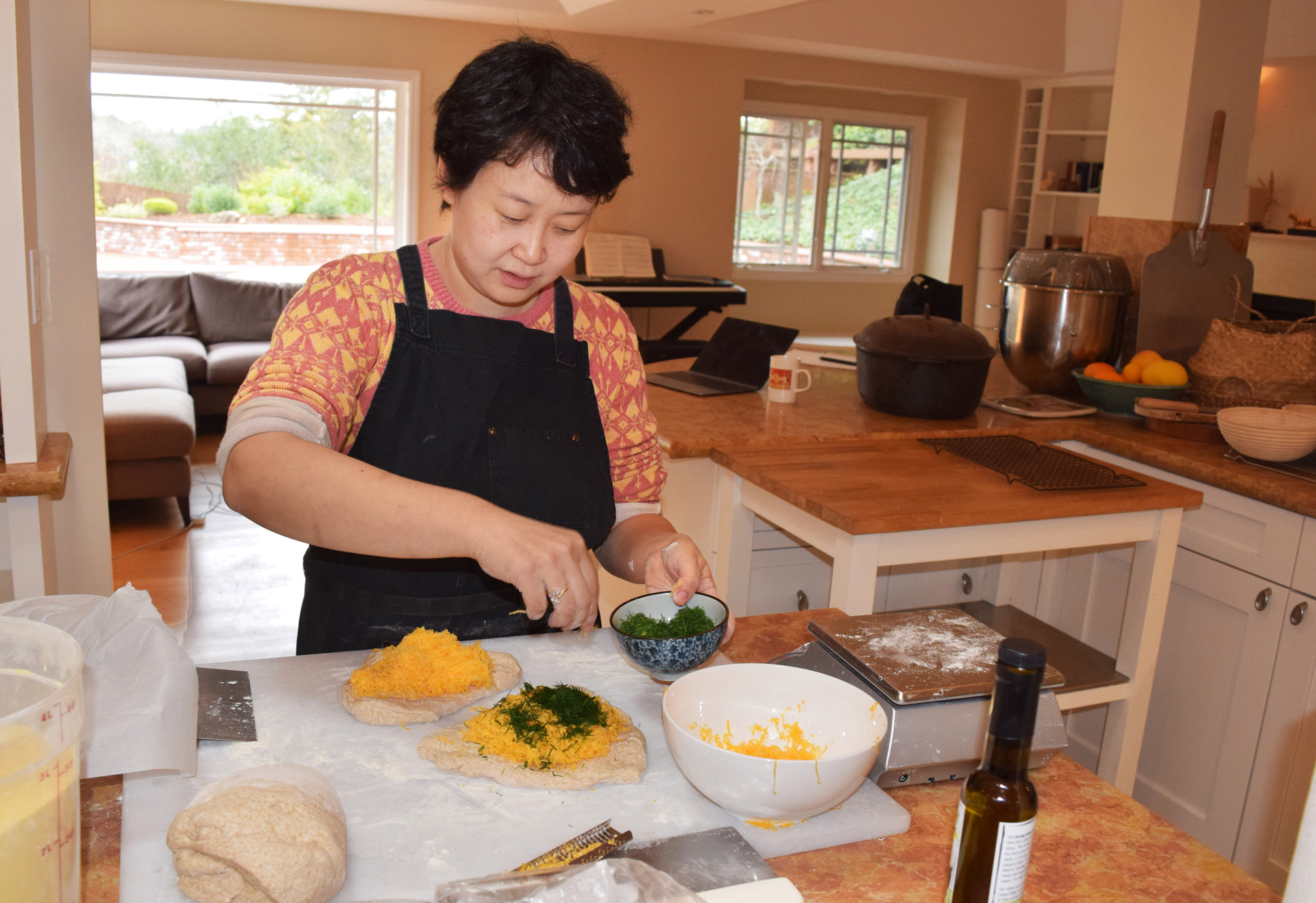
California's cottage food law, launched in 2013, enables food entrepreneurs like Mayimin to kick off companies in their kitchens without the usual costly, complicated requirements. The Little Sky Bakery moniker came from her husband, reflecting her petite stature and the English translation of her first name.
Goodbye law, hello bread
Mayimin knew she needed to get smarter about bread making if she wanted her newfound starch passion to fly so she devoured books like Tartine Bread and The Book of Bread while also avidly studying instructional You Tube videos. However, one could say she had bread in her DNA because her family was from wheat-growing Northern China — think steamed buns and noodles — where her grandmother whipped up lots of tasty skillet bread when she was a child.
After living with this grandmother while her parents pursued doctorates in the United States, Mayimin left China at age seven, decamping to Ohio and later New Jersey to rejoin them. Later, as a Harvard undergrad, she assumed her path was to earn a doctorate like her parents so she was awarded a degree in philosophy, then a masters in religion, with a Ph.D. on the horizon.
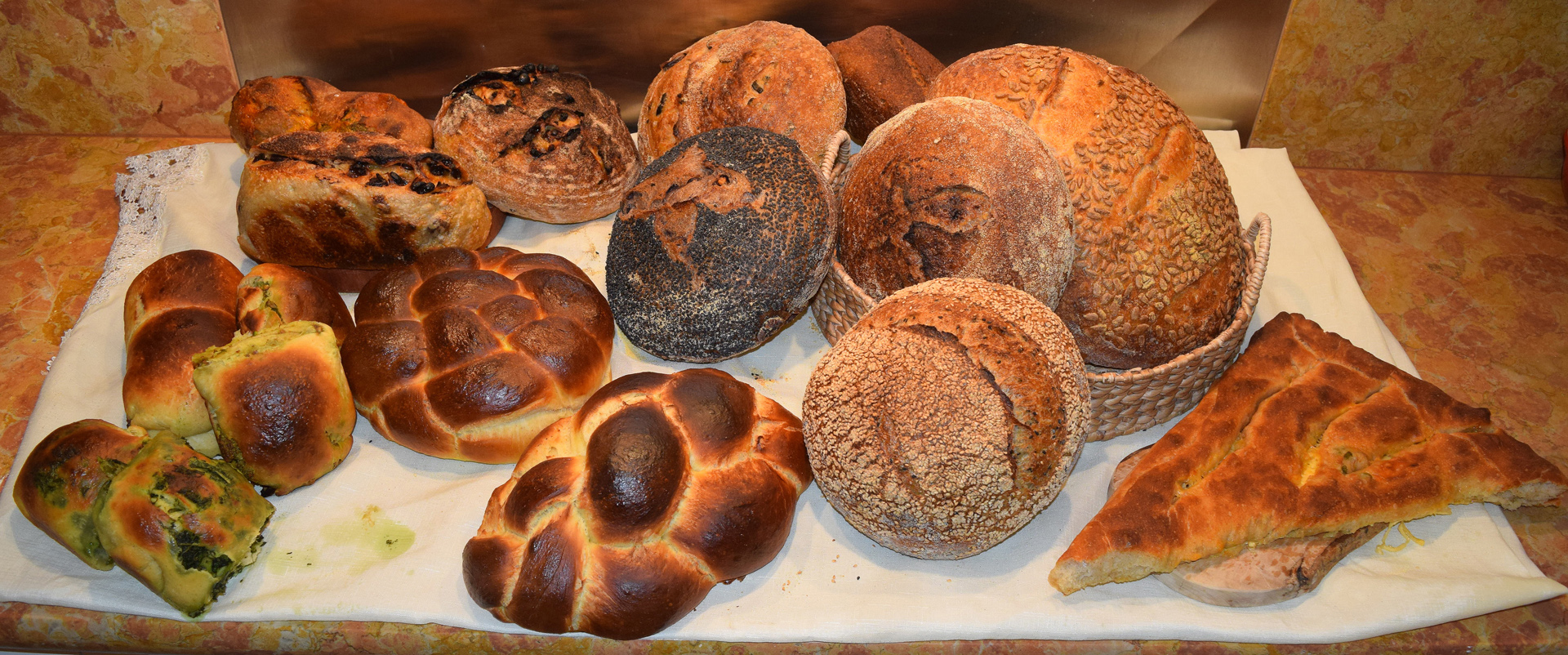
However, "I was starting to realize I didn't like writing and reading," she says, but nonetheless, she plowed through law school because it was a field with more practical applications. At her law firm, Mayimin worked on a huge, lengthy antitrust case that exposed her to a new concept. "It was the first time I'd ever seen a company that made a physical product," she recalls. "That was extraordinarily eye-opening."
Something else soon became apparent. "I thought, so if I can make partner after many years, would I be very happy? Would I be as happy and excited as the best of the partners here? I didn't think so," she admits.
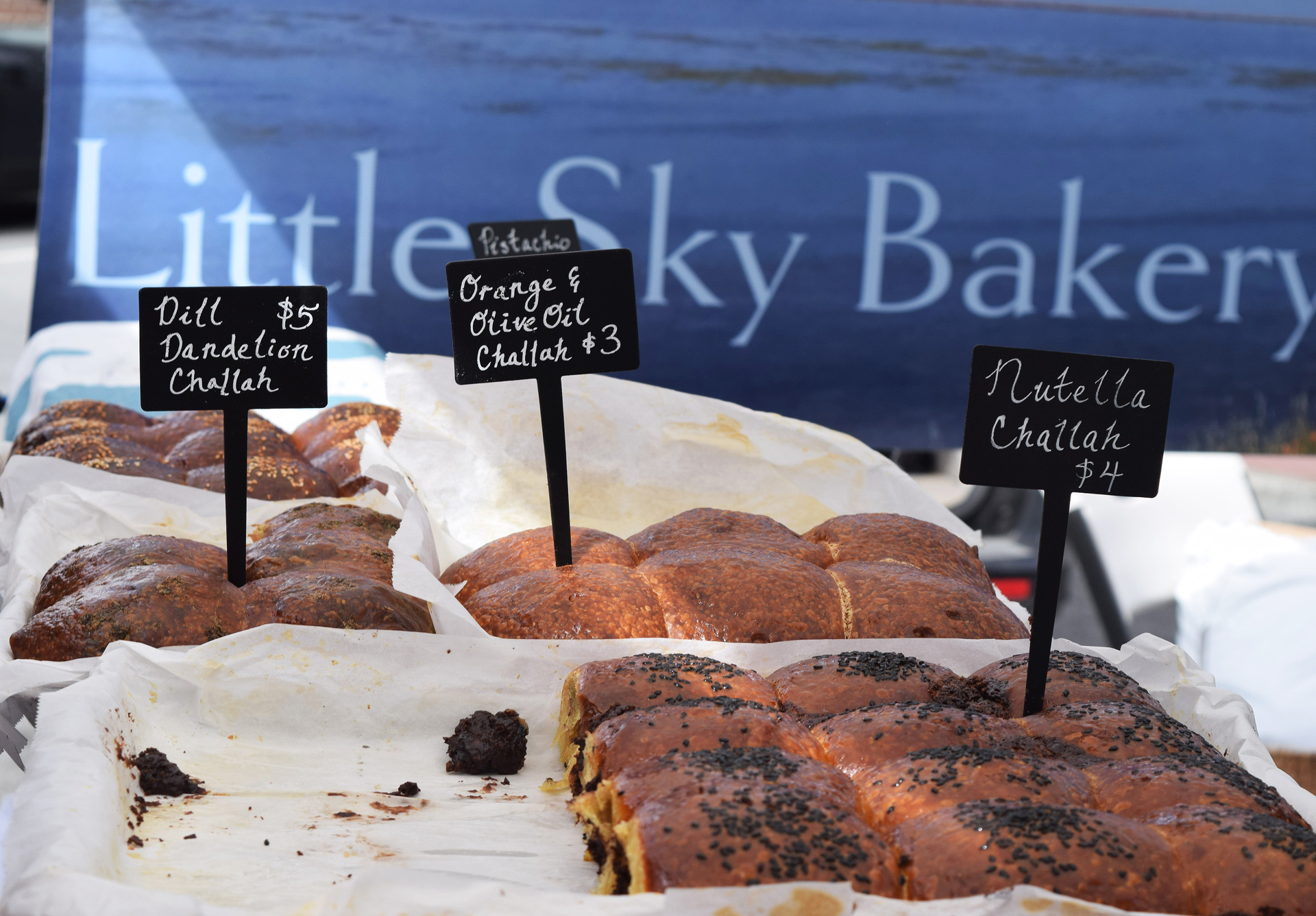
From juice to loaves
After that realization, her next stop was Shanghai to launch cold-pressed juices to the Chinese market with a fellow female Harvard grad. "It was an incredible experience because I knew nothing about anything," says Mayimin. "I knew nothing about China because I had left when I was seven. I knew nothing about business. I knew nothing about juices." She co-ran the successful juice business for five years, concurrently maintaining a long-distance courtship and later marriage with her now-husband, a fellow Harvard alumnus, who was then working on a post-doctorate at MIT.
Newly married couples living on two separate continents wasn't very workable and "the clincher was that he got a job here at Stanford," Mayimin says, hence the move to Menlo Park. But this attractive Peninsula town has grown on her:
"One thing I did not expect from becoming a baker in the community is how integrated I feel. It's rewarding," she explains. "I never had a home. I moved so much when I was a kid, then Shanghai always felt a little temporary; it never felt like home. This does."
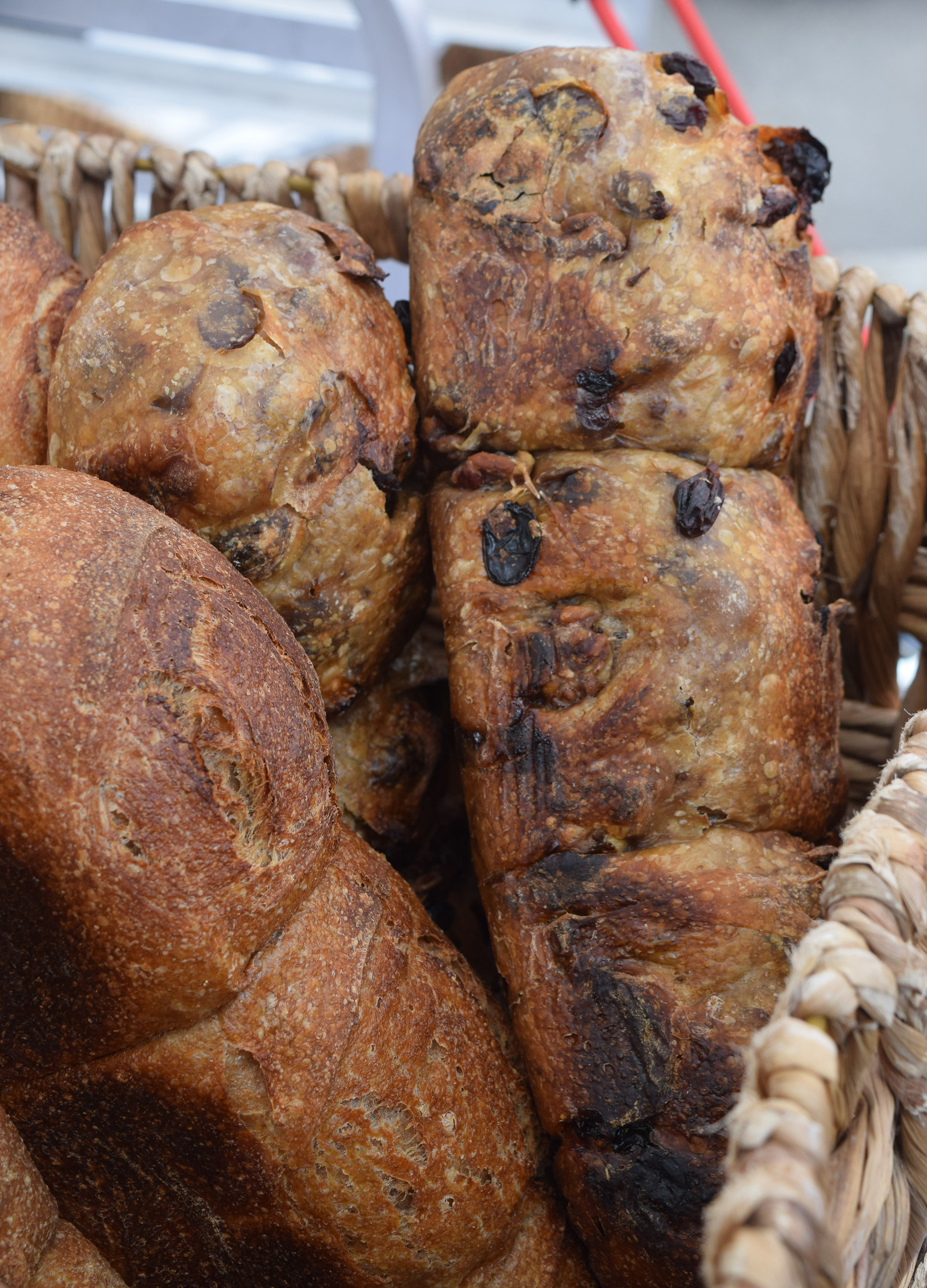
After the strong response to her postcard marketing experiment, Mayimin opened a booth at the seasonal downtown Palo Alto farmers market. Her bread was an instant hit, selling out in the first half hour until she was able to pump up production as much as she could in her suburban kitchen. She added other farmers market locations (Menlo Park, Portola Valley, Saratoga) and a few pop-ups on the Peninsula and even now, patrons are lined up when her stall opens, after which, her supply doesn't last long. To come in late spring will be a booth at the large farmers market in Mountain View.
Overcoming challenges as a (very) small business
Her young boulangerie has had two major challenges, the first being the issue of production. With demand for Mayimin's bread so strong, the double oven in her kitchen and a couple of later-acquired steam ovens on rolling carts can't produce enough to supply her many fans. She hopes to find a more accommodating location to address this problem.
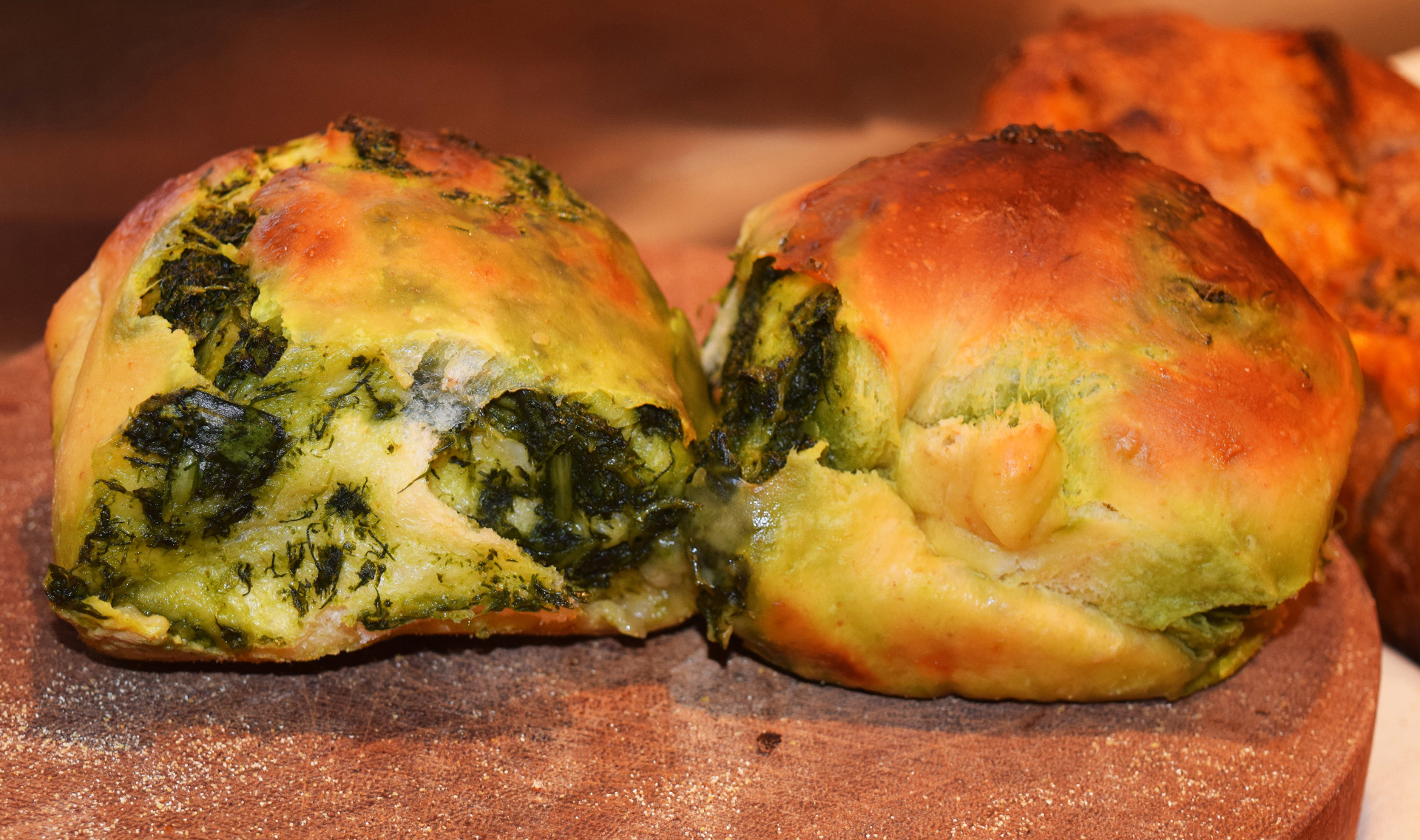
Little Sky Bakery's second predicament was solved by serendipity. She was working up to 18-hour days last year at the same time as becoming pregnant. "This was not sustainable," she states, realizing that help was needed as her pregnancy progressed. Harvard chum Yan Xu "just happened to be available. We called him and he flew out the next week," says Mayimin.
A poly sci major who had worked in nonprofits, Xu was looking for a new career because "I wasn't good at fundraising," he admits. Having no professional food experience, either, he nonetheless has become captivated with the craftsmanship aspect of bread making and is now Mayimin's business partner. His help will be needed even more after she has her baby in June.
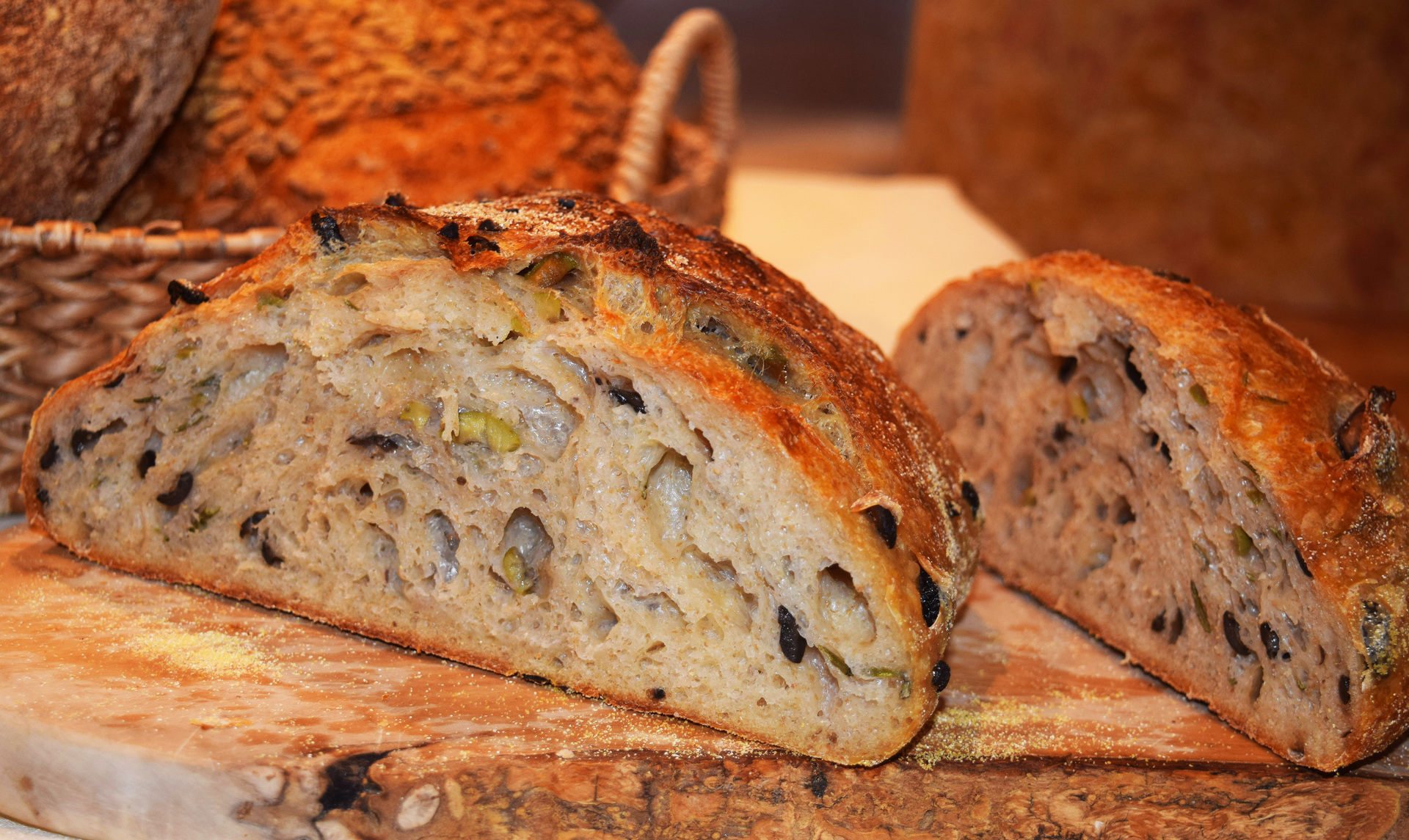
A superstar starter
At the heart of Mayimin's success is her starter, she believes. Despite its mysterious, century-long travels, "It's a very good starter," she insists. She has learned to respect her starter's robust capabilities the hard way, after a calamitous trip in which she took her starter with her on a family trip to the cold, wet tip of Long Island and was terrified that she had killed its best properties.
"I was trying to make bread for the family. It rose but it tasted so bland," she relates. After this batch of blah bread, "I was watching over the starter like a mother hen, trying to keep it warm, reading chemistry papers," Mayimin recalls. "That was a very panicked vacation."
Fortunately, her starter reverted to form once she was back in the Bay Area. Everything made by Little Sky Bakery, including the challah, uses this starter, with the first gentle rise lasting up to a week.
Her eight or nine "basic" offerings include a tangy, hole-rich country bread covered with sunflower seeds, a remarkable olive rosemary loaf with a pleasing texture that's full of black and green olives, a dense, super-tart pumpernickel rye, olive oil and orange flavored challah and her addictive raisin walnut bread. "We add a lot of fruit. Don't buy the bread if you don't like raisins," she warns.
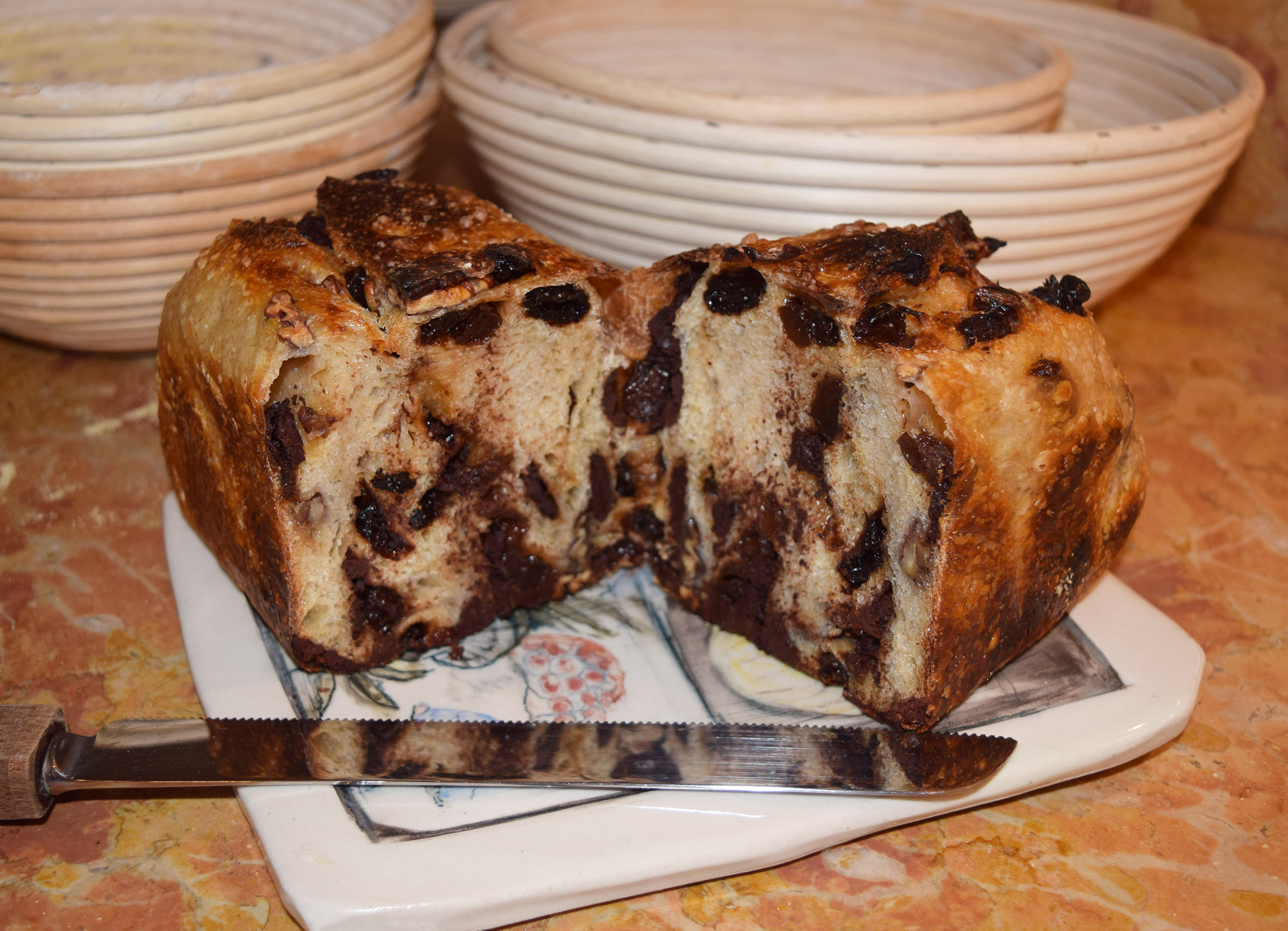
Exercising her creativity with new flavors
Mayimin has been reveling in creating new bread offerings, which are rotated into the regular line-up. Using her lush challah as a vehicle for delicious fillings has been a well-received idea, like dill-dandelion, which shows off the earthy, slightly tart flavor of this medicinal plant. Using a different dough formulation, she has developed "cheese twins," which are two plump little conjoined rolls featuring various cheeses that have a different compatible add-in — say, chopped fresh jalapeños or cracked black pepper — in each.
Then there are her delectable little loaves of bread lavishly filled with slabs of bittersweet chocolate, sour and sweet dried cherries and toasted pecans. She has produced specialties like avocado bread, saffron-turmeric bread and sourdough with swirls of pungent lazi, a chile sauce that's a mainstay in Chinese households. Current flavors under development include sourdough scones and cheese-rich formulations of fougasse.
Seeing the delight with which she addresses her new profession might be enlightening for others who aren't content in their work and hope for something more internally rewarding. Says Mayimin: "My attraction to business is, there's some sort of need there and there's a product that 's okay but I could make a better one." Her customers couldn't agree more.
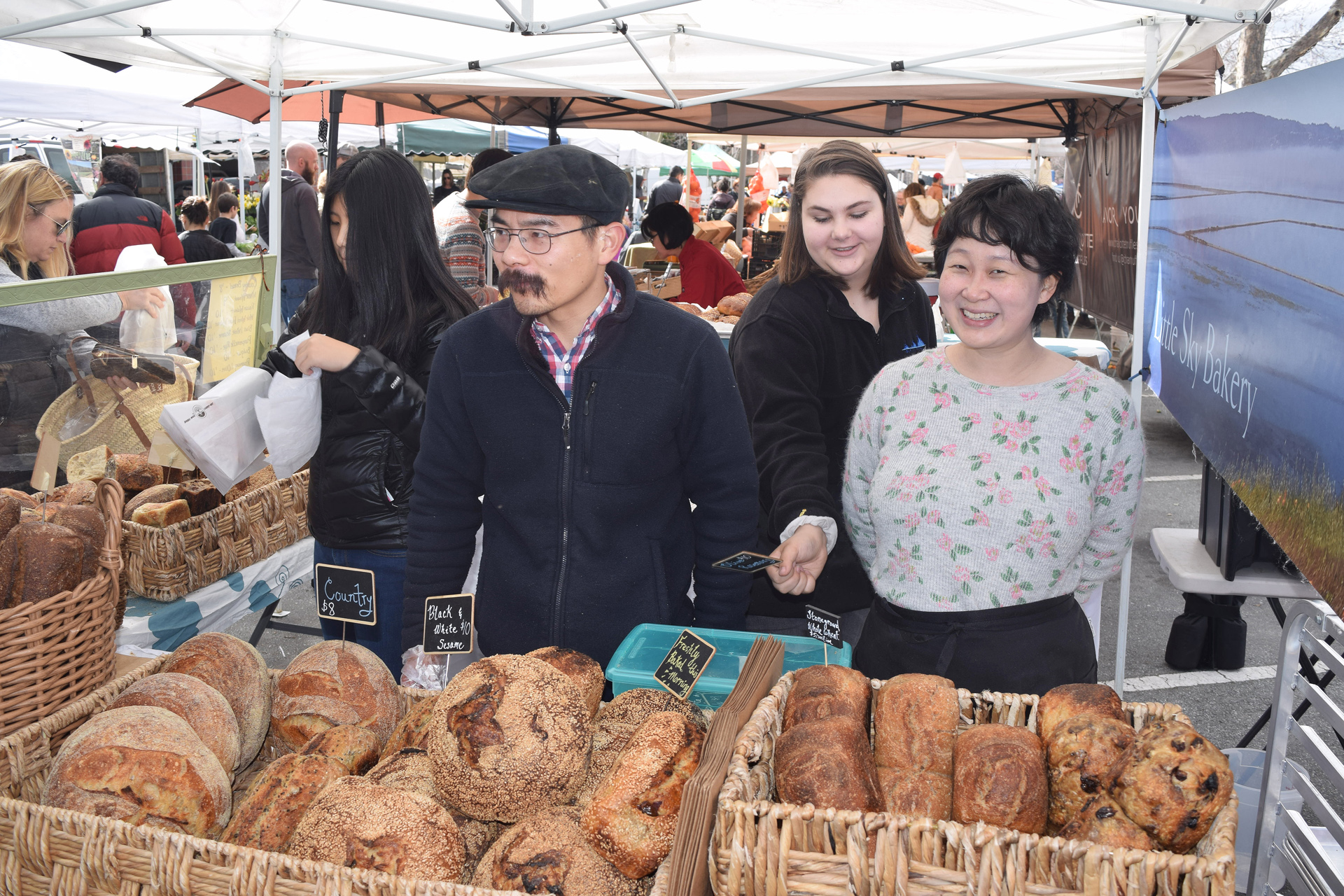
Where to find Little Sky Bakery bread:
Menlo Park farmers market
Sunday, 9-1
Downtown Palo Alto farmers market
Saturday, 8-noon, May 12-December 8
Portola Valley farmers market
Thursday, 2-5
Saratoga farmers market
Saturday, 9-1
Mountain View farmers market
Sunday, 9-1
Cafe Zoe
Saturdays 9:30-1
1929 Menalto Ave.
Menlo Park
Milk Pail Market
Saturdays, 10-2
2585 California St.
Mountain View
On the subject of bread, wondering what to do with leftovers? Tian Mayimin has a lot of bread available in her household so she has developed a fast, super-easy, one-pot-meal rendition of ribollita, usually a Tuscan bread soup or stew that typically contains beans, kale, other veggies and, most importantly, leftover bread. This version isn't soupy and can be endlessly customized. She says using very old, dry bread is just fine for this dish.
Country Bread, Tomato and Onion “Ribollita”
Makes 2-4 servings
Ingredients
- A generous half-loaf of bread, ideally country bread or other crusty bread
- 3-4 medium-sized tomatoes, 2 cartons plum tomatoes, or 14½-ounce can whole tomatoes
- 1 onion, sliced
- Garlic, minced (optional)
- Olive oil
- Salt and pepper to taste
- 2-4 eggs (optional)
- Chile flakes (optional)
Instructions
- Cut or rip bread into 1-inch pieces. Roughly chop tomatoes, saving all juice.
- Cover the bottom of a large skillet with olive oil and heat until oil is hot. Add onion and garlic (if using) and cook on medium until translucent, stirring. This should take just a few minutes.
- Add tomatoes with their juice and cook on medium for 5 to 8 minutes until tomatoes and onion slices start to soften. Less time is required for canned tomatoes.
- Add bread pieces. Cook for another 5 to 8 minutes until the bread has softened and soaked up the juices. Add salt and pepper to taste. If bread is too dry, add stock or broth.
- If adding eggs, push the bread mixture to one side of the pan, add a little more oil and put eggs into the pan and cook over easy. Add a little salt and pepper to eggs.
- Serve in the pan, on a platter or dish up individual servings.
Variations: For a spicier version, add some chile flakes along with the onion. Additional chopped or sliced vegetables can be added after first softening the onion but don't add too many. Chopped fresh herbs can also be added at the end of cooking.